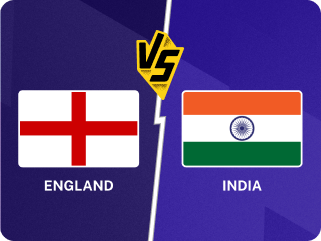
After a brief break, Babar and Rizwan are back opening in T20Is again and this time they seem they are here to stay.
A criticism of Pakistan cricket is that they are hesitant to make bold decisions, and go back to the comfortable after one roadblock. After the captaincy U-turn following a poor T20I tour to New Zealand under Shaheen Shah Afridi, Pakistan’s claims of looking to bat with more intent in the format have seemingly taken a backseat: the duo of Babar Azam and Mohammad Rizwan is back at the top of the order after 13 games of the experiment of trying new options failing.
With growing cries over their strike rate – they had a scoring rate of 7.98 runs per over – Pakistan decided to split Rizwan and Babar ahead of the New Zealand T20Is. It gave Saim Ayub, who impressed in last year’s CPL with 478 runs at a strike rate of 142, an opportunity, with the youngster switching between opening alongside Rizwan and Babar. The two veterans took turns to bat at No.3, but the move failed to get the desired results. The two eventually turned out to face the new ball together against England at The Oval last week.
After the “big-hearted” Babar sacrificed his opening slot at Auckland, Ayub opened with Rizwan, with the new partnership scoring 33 in 14 balls. It proved to be a breath of fresh air in a setup that has long focused on accumulation, but it went downhill thereafter. Haseebullah Khan replaced him at the top with Rizwan in the fifth T20I, but the game was eventually washed out with Pakistan not batting.
Rizwan, playing alongside another opener for the first time since 2021, struggled to keep the run rate going. Though he was among the runs, he struck at 126 on the tour, and was pushed down at No.3 when New Zealand came calling again, this time at home. Pakistan had a new opening pair in Rawalpindi, with Babar and Rizwan switching positions, batting alongside Ayub. Four games later, Rizwan and Ayub returned to open in Dublin, but after another poor series from the first wicket, with stands of 7, 6, 16 and 0, Pakistan returned to the veterans against England.
Ayub’s form was a worry too. In 12 T20I innings this year, he made 163 runs at an average of 13.58. His only notable knock was a 29-ball 45 against Ireland in Pakistan’s shock defeat. On the other hand, Rizwan and Babar continued their individual run-scoring – Rizwan averaged 54.71 with three fifties in 12 innings and Babar made 502 runs in 13 innings despite not having a constant batting position. It was eventually decided that the duo should return to open, combining their experience and camaraderie to navigate the pressures of the T20 World Cup.
As expected, it brought back instant runs and eased any sense of edginess around the camp. Against England, the two familiar faced the new ball at The Oval, notching up 59 in 36 balls at a run rate of 9.83 per over. The rest of the team failed to inspire and Pakistan were all out for 157 in the end, losing the game by seven wickets. But the result mattered for little because the game was about the reunion of the two Pakistan stalwarts. Down the line, they might come under the scanner again for their strike rate or their conservative batting, but Pakistan have shown their trust again on RizwAr and it would need a massive overhaul to break them again.
Subscribe to the Wisden Cricket YouTube channel for post-match analysis, player interviews, and much more.







